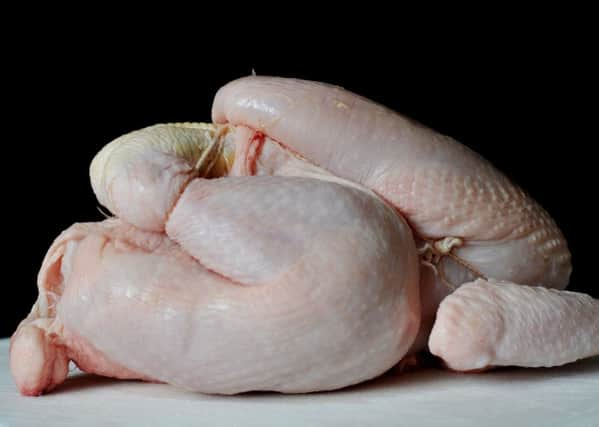MPs fear for food security in wake of Brexit


Government must ensure future trade deals protect farmers and do not undermine them by allowing food imports produced to lower welfare or environmental standards, the group said.
The UK currently imports 40 percent of its food but the prospect of deals with countries including the US have raised concerns over the likes of chlorine-washed chicken and hormone-fed beef entering the UK and making it hard for farmers to compete with cheaper imports.
Advertisement
Hide AdAdvertisement
Hide AdThe All-Party Parliamentary Group on Agroecology also warned free trade deals could lead to direct foreign investment, which could encourage farmers to adopt more intensive farming systems that move the UK away from sustainable ways of producing food and managing land.
A report released to coincide with the Oxford Real Farming Conference warned most farmers outside the east of England would struggle to compete at world market prices.
The group’s chairwoman, Labour MP Kerry McCarthy, said: “There are serious concerns that if negotiators don’t value farmers enough and build poorly managed trade deals that reflect this - particularly a US-UK deal - it could trigger a race to the bottom in terms of standards and ability of our own farmers to compete.
“The APPG is determined this sector should not become a bargaining chip or something that can easily be traded.”
Advertisement
Hide AdAdvertisement
Hide AdEnvironment Secretary Michael Gove has insisted that environmental or animal welfare standards will not be weakened to secure a US trade deal, but International Trade Secretary Liam Fox has dismissed issues such as chlorine-washed chicken as a “detail” of any trade agreement.
In a recent paper, the National Farmers’ Union (NFU) president Meurig Raymond said he had no doubt farming can flourish post-Brexit, but that this was heavily dependent on decisions taken by government, while his deputy Minette Batters told the Northern Farming Conference that trade alone will shape the farming landscape for years to come.
Adam Bedford, regional director of the NFU, said it is crucial trade deals “celebrate the quality and diversity of the food produced, recognises the economic importance of our farming and food businesses and protects the world-class standards that Yorkshire farmers pride themselves on achieving”.
Baroness of Pickering, Anne McIntosh, said farmers do stand to benefit from new international markets and import substitution, but added: “We have to keep the integrity of our market.”
Advertisement
Hide AdAdvertisement
Hide AdResponding to the APPG report, a spokesman for Defra said: “We are committed to securing the best possible trade deal when we leave the European Union - one which includes a comprehensive free trade deal with the EU and, in due course, the chance to negotiate new free trade agreements with other countries.”